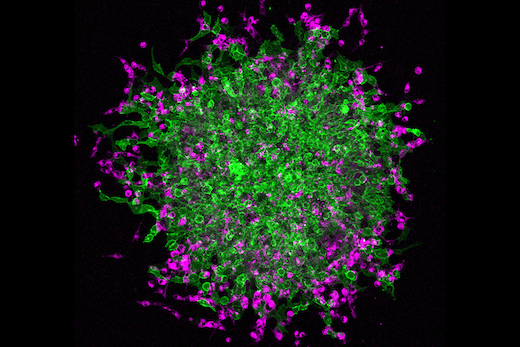A huge cancer genome project has highlighted how DNA that doesn’t code for proteins is still important for keeping our cells on track.
The Pan-Cancer Analysis of Whole Genomes analyzed more than 2,600 tumors from 38 tissues, looking for causative mutations and patterns. Previous work had concentrated on the regions of the genome that code for proteins, but a significant proportion of cancer patients’ tumors don’t carry known “driver” (causative) mutations in protein-coding regions. So this project went out into what used to be called “junk DNA” or the “dark matter” of the genome.
Emory bioinformatics postdoc Matthew Reyna is the first author of one of 23 papers on the PCAWG project, published Feb. 5 in the Nature family of journals. His paper in Nature Communications looks at mutations in non-coding regions of the genome in tumors, analyzing which biological processes are affected.
Some of these were mutations in the promoters of genes encoding well-known cancer suppressors such as p53, but the project also identified new genes containing cancer-driving mutations. A promoter is the stretch of DNA that tells the cell “make RNA copies starting here”.
Reyna contributed to the project while he was at Princeton, working with Benjamin Raphael, and at Emory as well. More recently, he’s been investigating protein-protein interactions with Haian Fu, Andrey Ivanov and others as part of the Cancer Target Discovery and Development (CTD2) project.





